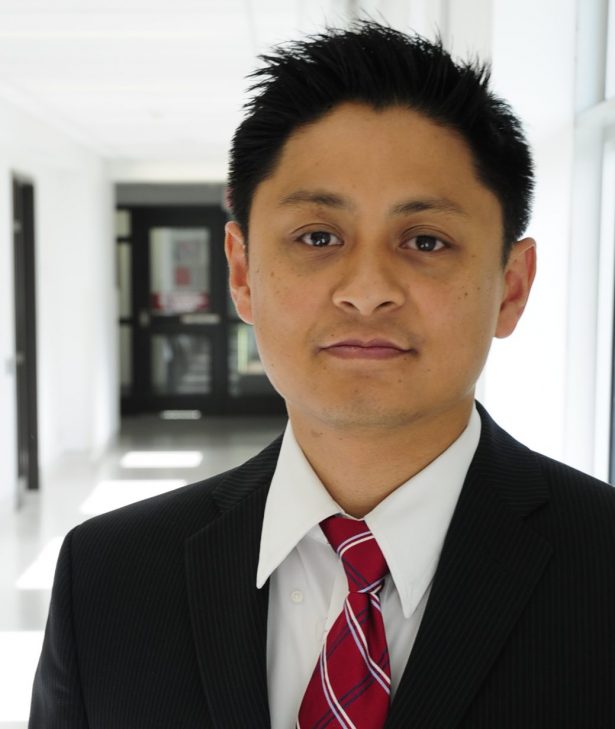 Paul Yong completed a MD/PhD degree in Experimental Medicine in 2006 and completed Residency in Obstetrics & Gynaecology in 2011 at UBC. He became an Assistant Professor in the UBC Department of Obstetrics and Gynaecology, Division of Gynaecologic Specialties, in 2012, after completing a fellowship in endometriosis, pelvic pain, and advanced laparoscopic surgery.
Paul Yong completed a MD/PhD degree in Experimental Medicine in 2006 and completed Residency in Obstetrics & Gynaecology in 2011 at UBC. He became an Assistant Professor in the UBC Department of Obstetrics and Gynaecology, Division of Gynaecologic Specialties, in 2012, after completing a fellowship in endometriosis, pelvic pain, and advanced laparoscopic surgery.
To date he’s received research funding from the Canadian Institutes of Health Research, the Canadian Foundation for Women’s Health, the Women’s Health Research Institute, and the University of British Columbia. Paul has also been awarded infrastructure funding from the Canadian Foundation for Innovation with matching funds from the BC Knowledge Development Fund. In 2015, he obtained the VCHRI Mentored Clinician Scientist Award.
What is your day job?
I’m an Ob/Gyn at the BC Women’s Centre for Pelvic Pain and Endometriosis and at the VGH Multidisciplinary Vulvodynia Program; Research Director of our endometriosis research program; and Assistant Professor in the UBC Division of Gynaecologic Specialties.
What is your primary research focus?
Endometriosis, in particular the multifactorial contributors to deep dyspareunia (pelvic pain with deep penetration during intercourse). These contributors range from central nervous system sensitization and psychological factors, to the role of local nerve formation, to the biology of deep infiltrating endometriosis.
What drew you to the subject?
Endometriosis is a common condition affecting 10% of reproductive-aged women, and about half of such women experience deep dyspareunia. Based on my clinical practice seeing women with endometriosis, I realized that recognition and treatment of deep dyspareunia is not always ideal, and there needs to be a better understanding of its causes and treatment.
What do you find are the biggest challenges in pursuing research while being a clinician?
Research, in general, can be very challenging these days, in particular to obtain funding and publish in good journals. I think being a clinician has been helpful for me, in terms of having clinical experiences that provide context to frame a research problem.
What are the greatest supports for your research?
First, my spouse, in tolerating me working after hours and on weekends!
Also, my practice partners at BCWH (Catherine Allaire, Christina Williams, Mohamed Bedaiwy) and VGH (Leslie Sadownik and Sydney Thomson), and all our allied health care colleagues and administrative staff, who are very supportive of research. I am also thankful to my UBC Department, and my Hospitals and Research Institutes, which provide an environment where I have the potential to succeed. In addition, our patients are extremely supportive – we have a very high consent rate for participation in research.
Mentorship has been really important to me, and I would make special mention of Lori Brotto and David Huntsman, and my PhD supervisor Wendy Robinson. In addition to my practice partners, other colleagues have encouraged and supported me, including Geoff Cundiff, Deborah Money, Dianne Miller, Jessica McAlpine, Mark Heywood, Blake Gilks, Anna Lee, Sarka Lisonkova, and many others. It has also been great to work with other new investigators, especially Michael Anglesio and Kelly Smith. Finally, our research team, including my research coordinator (Heather Noga) and trainees (Bo Peng, Fahad Alotaibi, and Natasha Orr), and the WHRI research program manager (Nicole Prestley), are all amazing.
You’ve been successful in obtaining for funding for your research- what advice would you give to others?
Never give up. Failure is part of the process, but you have to keep trying. Also, find a niche where you can make a unique contribution. Search out good mentors and collaborators. Start with smaller catalyst grants at first, and use that to build up data to apply for bigger grants.
What are your future plans and goals? What would you like your research to achieve?
Clinically, I would like to have a longstanding and consistent record of safe and effective clinical care, as demonstrated by my practice partners over many years.
Also, I would like my research to make a difference in the lives of patients. I would like to branch out into more patient-oriented care, including qualitative work with patients to understand what they feel is most important in terms of sexual health in endometriosis. Furthermore, I am interested in clinical trials of novel medications for pain in endometriosis, based our some of our findings in the laboratory.
When you aren’t busy being a clinician and a researcher – what do you do?
Husband, father, and amateur outdoorsman!